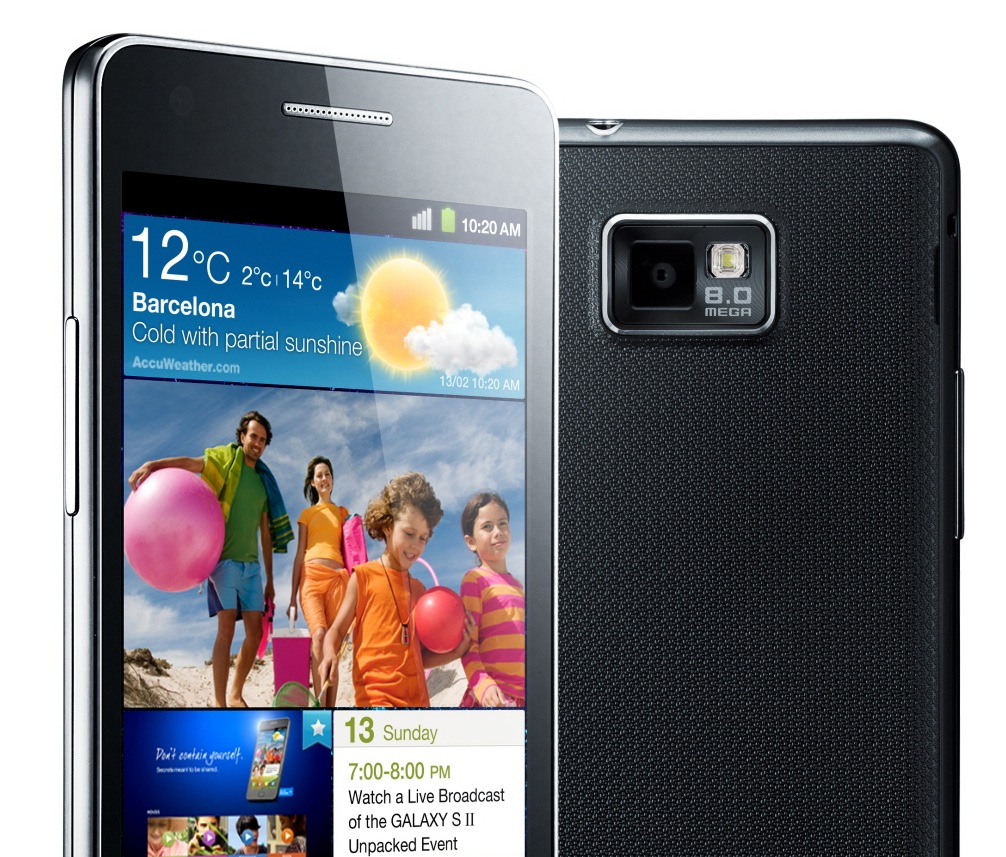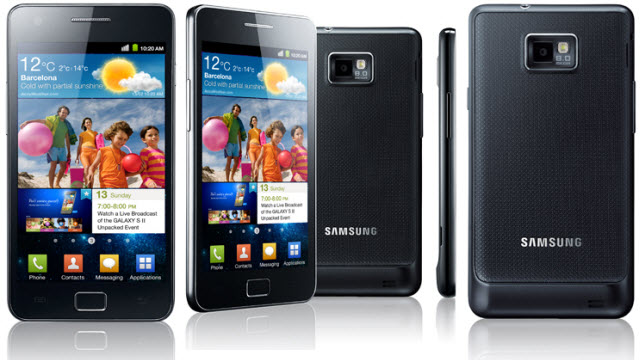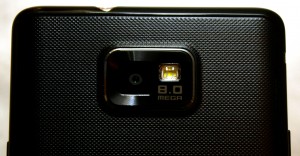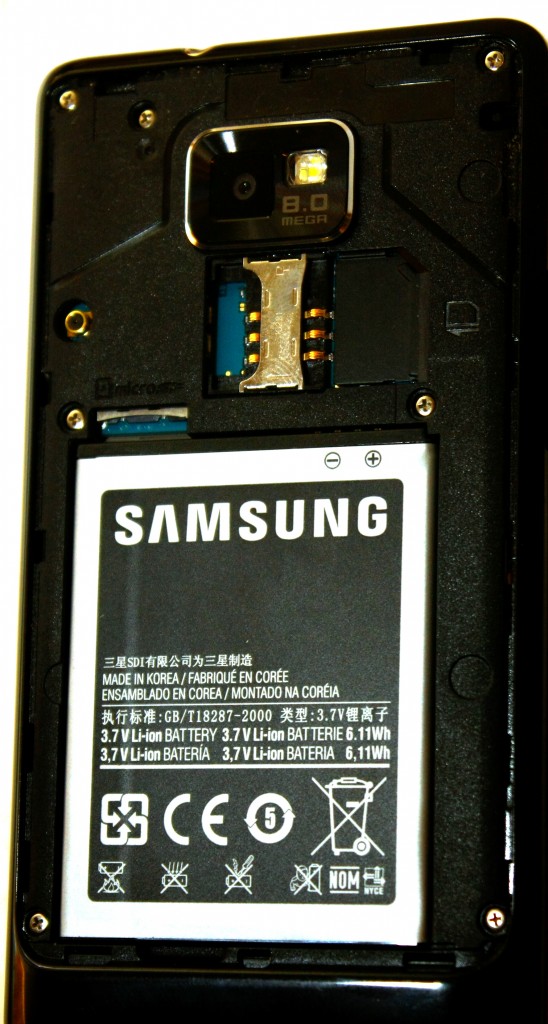With powerful hardware working together with an industry-leading camera system and intuitive AI experiences, everyday tasks have never been easier and faster
Samsung Galaxy S II: The galaxy strikes back

Samsung scored a smash hit with the Galaxy S, a phone that almost single-handedly established it (along with Android) as a viable threat to the iPhone hegemony on big, flat, beautiful, minimalist, keyboardless smartphones. Time passed, other phones came, Samsung got back to work. And now, ladies and gentlemen, live and in the plastic, the Galaxy S II.
I had lunch with a friend yesterday. She has a Galaxy S. “Oh, you have the new one,” she said a little dismissively. An IT pro, she’s been up and down the tech block, round and round the upgrade carousel. “Whatever,” her body language said. But then the nose twitched slightly, and she reached out for it. And just as Frodo became possessive after he first held the One Ring, something changed. “Preciousssss. Mine, I wants it,” she hissed at me.
Mmmm, shiny!
While the Galaxy S was attractive enough, the S II is super sleek and slithery. Black as ringwraith’s heart, glossy as an inane Lord of the Rings allegory. It’s marginally taller and wider (fractions of an inch) than its predecessor, but thinner at 8.49mm (yes, Samsung actually specify it to the tenth micrometre). That’s TWO WHOLE MILLIMETERS thinner! Samsung claims it as the world’s thinnest, but only three people actually care.

It’s a little more squared off than its predecessor, and so looks disconcertingly large, but because it’s so skinny, it sits lightly in your pocket, and snugly in your hand.
Big but super-thin is clearly where smartphones are going. Five or ten years back manufacturers were in a race to go every tinier. They reached absurdly shrimpy levels, before realising that the user still has to be able to hold and talk  into the thing (cue flashback to Derek Zoolander). Now, as we type and email and browse and Tweet and compose violin concertos, we need something bigger. So thin it is. By 2014 you’ll keep losing your phone in amongst your pile of expense receipts.
into the thing (cue flashback to Derek Zoolander). Now, as we type and email and browse and Tweet and compose violin concertos, we need something bigger. So thin it is. By 2014 you’ll keep losing your phone in amongst your pile of expense receipts.
So. The new Galaxy S II is pretty. What else?
Packed to the gills
It’s fast. Dual Core 1.2GHz ARM processor, 400MHz GPU. You browse as fast on this thing as on your laptop. It’s even fast enough for the writing recognition to be tenable as a text input mechanism. Assuming you’re not French, because it’s physically impossible to write the é character, so no café, no décolleté, no légumes.
The display is phenomenal – Super AMOLED tech in a 4.3” display (actually 4.27”; amusingly Samsung suddenly rounds up…). It’s fearsomely bright and vivid, though Samsung helps it along by over-cranking the saturation. It’s also perfectly viewable from almost any angle. The capacitive touch screen is very fast, accurate and responsive.
Multimedia? Check
 It has an 8MP rear camera, and 2MP front-facing for video calling. The rear camera will do full HD video, which is amazing. Not so amazing is that most mobile phone cameras, except perhaps the Nokia N8, are terrible at taking pcitures. The Galaxy S II’s camera has lots of pixels, but poor image quality in anything but easy conditions. Get even a bit of bright light into the edge of the frame and the flare is awful. Less pixels, more quality, please. Thanks.
It has an 8MP rear camera, and 2MP front-facing for video calling. The rear camera will do full HD video, which is amazing. Not so amazing is that most mobile phone cameras, except perhaps the Nokia N8, are terrible at taking pcitures. The Galaxy S II’s camera has lots of pixels, but poor image quality in anything but easy conditions. Get even a bit of bright light into the edge of the frame and the flare is awful. Less pixels, more quality, please. Thanks.
The Galaxy S II runs a mostly standard Andoird 2.3 Gingerbread, tweaked with the TouchWiz interface. This doesn’t add an awful lot worth writing home about, although you can either select each of the seven home screens with a swipe, or you can tap one of the nav dots to jump straight to the one you want, a feature HTC could do well to copy.
As per usual with Android, it won’t talk to Macs by Bluetooth without workarounds, but the Galaxy S II does come bundled with Kies air, which allows you to set it up as a Wi-Fi connected device, accessible through a browser session on your computer (configure, back up, upload/download files).
Samsung are not making the same mistake twice – after watching how BlackBerry exploded into the corporate market, they’re beefing up the IT-department friendly features, including MS Exchange ActiveSync, on-device encryption, VPN and remote management and even Cisco WebEx secure remote meeting/conferencing support. It also comes with Polaris Office, allowing you to view and edit Word, PowerPoint and Excel docs.
 Its media support is ok – nothing outstanding, but it ticks the main boxes. The image editor is useful, albeit feature-poor. Audio quality from headphones is merely acceptable. It does support Flash, which is a plus.
Its media support is ok – nothing outstanding, but it ticks the main boxes. The image editor is useful, albeit feature-poor. Audio quality from headphones is merely acceptable. It does support Flash, which is a plus.
Social media stuff is a bit of a hodgepodge of services and pseudo-services (looks like something useful, but is basically a wrapper with a pretty logo). If you’re into that kind of thing, fine, but otherwise it’s just another data aggregating, privacy-eroding buffet of leftovers. Beware using the Samsung Social Hub for managing your POP/IMAP email, unless you don’t mind your login credentials being snaffled without your consent so that their server can log in and pull messages on your behalf. K9 all the way, baby.
Also forget the Samsung Apps application market. Just use Android Market, because at least when it flags up that updates are available for your app, it tells you which app it’s referring to.
The Galaxy S II is a fine phone, and will do even better than the original. Apart from the few niggly little things picked apart above, it’s state of the art smartphone tech. The only reason you may opt for an iPhone instead is because you suckle at the teat of Cupertino – or because you have the very reasonable doubts about the robustness of ever so flimsy-feeling Galaxy.
Who it’s for
- The smartphone buyer that browses a lot, and consumes a lot of video media and wants a biiiig (and bright) screen.
- The business person wanting something that integrates a little better with a typical corporate IT environment.
What we like:
- The display is fantastic – crisp, bright, fast.
- It feels very light and comfortable in the hand – assuming you have fairly big hands
- Plenty of performance to last you well through to your next handset upgrade
What we don’t like:
- Body is a bit plasticky for such an expensive phone


